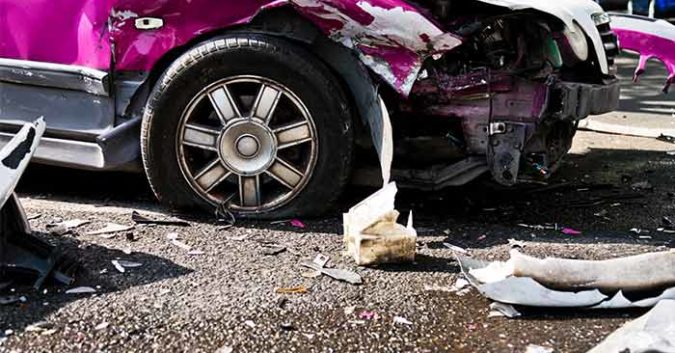The long-awaited July 4th weekend is upon us and — no surprise — America’s roadways will be absolutely clogged with cars and drivers. Not only will the roads be jam-packed, probability and past statistics also tell us that a higher-than-normal volume of these cars will be driven by drunk and/or reckless drivers.
As such, the National Safety Council (NSC) is drawing public attention to its annual driving safety tips and recommendations. The point of these tips is so that drivers can exercise caution – even more caution than usual – and hopefully reduce the number of serious car crashes and subsequent fatalities that occur on busy American roadways over holiday weekends.
The NSC has also released its annual predictions for the long weekend, dubbed The Independence Day Fatality Estimate. This coming weekend, the Council estimates that 466 people will be killed and an additional 53,600 will wind up being seriously injured in motor vehicle crashes.
The scariest thing about the NSC’s estimations? Well, a couple of things. For one: Historically speaking, they’re shockingly accurate. And secondly, along with all of the other statistics that the NSC has released on driving in 2015 and 2016, the figures are all trending upward. The 466 deaths and 53,600 serious injuries that the NSC estimates for this year are highest predicted numbers for the 3-day holiday period since 2008. Back in that year, the council predicted 498 deaths. 472 deaths were actually reported for that 2008 weekend.
Why The NSC Estimates Traffic Deaths
It might seem unnecessarily morbid, or perhaps a touch too fatalistic, to predict such a thing as road deaths on a holiday weekend, but predicting such figures helps state and local officials gird themselves for increased activity. Municipalities beef up their roadway police presences, so that officers may help lessen and prevent deaths from occurring.
Law enforcement, in these instances, have one goal in mind: Protecting roadways and making them safe for everyone — and this often means arresting drunk drivers, or those who are driving recklessly, including texting and driving.
The NSC president and CEO, Deborah Hersman issued the following in a press statement:
“The council issues these estimates not to scare drivers but to empower them to make safe decisions behind the wheel. We hope Americans will spend their holiday safely watching fireworks and celebrating with family rather than sitting in an emergency room.”
The National Safety Council’s 6 Driver Safety Guidelines for the July 4th Weekend
Here are the NSC’s 6 driver safety guidelines for the 2016 Independence Day weekend.
- Be sure that every passenger buckles up on every trip. The Council estimates that 181 lives could be saved this holiday weekend by seatbelts alone.
- Designate an alcohol and drug-free driver, or arrange for alternative transportation, such as a bus, taxi, limo, or Uber or Lift driver. Since 2010, more than 37 percent of all fatal crashes during each 4th of July holiday have involved alcohol in one way, shape, or form.
- For those driving long distances, make sure that the driver has gotten plenty of sleep the night before and that they take regular breaks to avoid fatigue on longer trips.
- Be absolutely certain never to use cell phones or smart phones while behind the wheel – all drivers should remain driving with both hands on the wheel. Even usage of hands-free devices should be restricted.
- Stay engaged with your teens’ driving habits. An NSC survey found many parents are more inclined to loosen household driving rules during the summer.
- Lean about your vehicle’s safety systems and how to use them. The NSC’s resource My Car Does What? Can help drivers understand the basics of their car’s safety features, such as adaptive cruise control, airbag safety alert icons, automatic emergency braking, blind spot warning systems, and backup cameras.
Driving Safe During These, The 100 Deadliest Days
A few weeks ago, the American Automotive Association (AAA) released its “100 Deadliest Days” report, which stated that during the 3-month stretch of summer there is a 16 percent daily spike in car crashes in comparison to other days throughout the year, making them the 100 deadliest days to be on the road.
According to the American Safety Council (ASC), Independence Day (July 4th itself) is not just one mere day within the so-called 100 deadliest days, but it is the single-deadliest day to be on the road — period. The second deadliest day of the year according to the ASC? July 3rd.
July 4th is America’s Independence Day. And it’s important to celebrate with loved ones the freedom that our country affords by barbecuing, playing Wiffle® ball and yard games, and going to see live music and fireworks. But it’s equally important that — along with freedom, fun, friends, and family — we do not let Independence Day become a day synonymous with fatal car crashes. In most cases, these crashes are avoidable; let us remember that fact this holiday weekend and drive safely!
